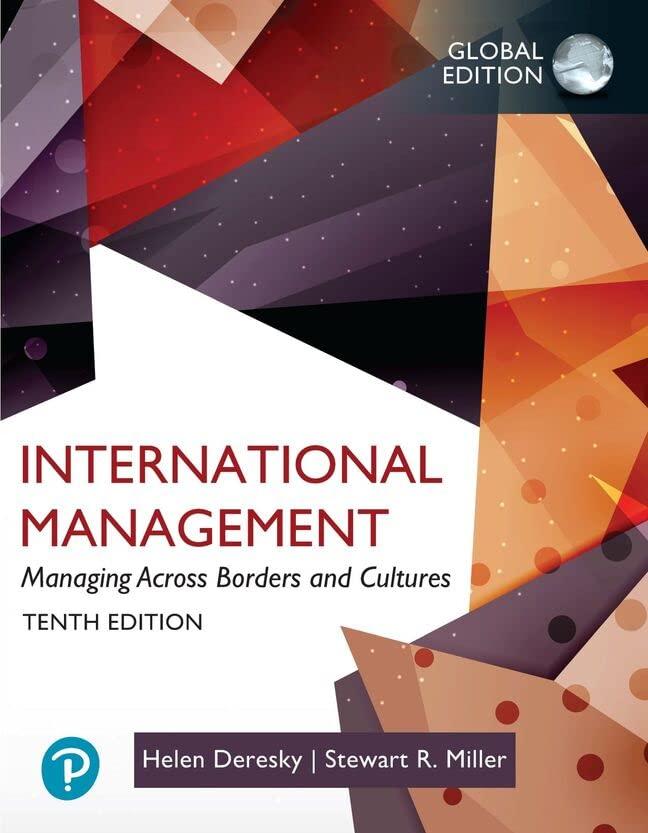The race to stay on top of technological trends and ward off new competitors is prompting some
Question:
The race to stay on top of technological trends and ward off new competitors is prompting some unlikely alliances and collaborations in the automotive market. One of the largest alliances is Ionity, a consortium that includes the BMW Group, Ford Motor, Daimler, Porsche, Audi, and Volkswagen. The goal is to share the huge cost burden associated with speeding up the development of autonomous driving, electric cars, and mobility as a service.
While each automobile company has skills on the traditional auto industry side, they often lack expertise in software, electronic architecture, and machine learning. As a result, some car companies are hedging their bets by creating a number of alliances. German car giant BMW is in an automotive driving alliance with Intel, Magna International, Fiat Chrysler, Continental, Aptiv, and Baidu. It has also joined forces with industrials giant Siemens AG and technology firm SAP SE to collaborate on a cloud-based data platform. Meanwhile, Honda has paired up with General Motors’ autonomous vehicle unit, Cruise Automation, and Volkswagen and Ford have announced a tentative link-up.
Analysts such as Andreas Tschiesner, a senior partner at McKinsey & Company, says that in the face of multiple technological advances, there is a perception that no single company can succeed in the modern car market. However, everyone needs to move quickly because there will only be a few winners when it comes to making autonomous vehicles a reality.
Alliances among car makers are not unusual. Daimler, Renault, Nissan, and Mitsubishi have been working together since 2010 on powertrains, vans, pickups, and city cars. However, lessons have been learned from this forerunner in alliances. The initiative to set up a new joint board between Renault, Nissan, and Mitsubishi has been mired in tensions following the arrest of Carlos Ghosn for alleged financial misconduct. Mr Ghosn, who caused unease as simultaneous head of both Renault and Nissan and as the architect and former head of the alliance, is now a fugitive living under armed guard in Beirut. He denies all charges, calling the allegations “meritless.”
While the episode threw the alliance into turmoil, it had seen some success, becoming one of the largest automakers in the world, rivaling the VW Group and Toyota, selling more than 10 million cars in 2018. In 2021, the Renault–Nissan–Mitsubishi group continues to be the world’s third largest automaker.
Ford CEO Jim Hackett has called the creation of Ionity a “delicate dance” since the partnering car firms still compete in a number of ways. Key areas of concern are intellectual property, data protection, and cybersecurity. This situation presents a challenge because autonomous vehicles rely on connectivity, over-the-air updates, and proprietary computer algorithms. While the big players involved naturally want to assure stakeholders and customers that they are in full control of their data, they do need to find common ground. Of particular concern is cybersecurity.
With incidences of hacking on the rise, any digital platform is vulnerable; therefore, each company will need to bring their best experts to the fore and collaboration is the key to success.
An alliance is not like a traditional merger or acquisition, so there is no clear route map to follow in terms of how the partnership might work. Likewise, the ties are not as strong; therefore, each of the partners has the flexibility to exit the alliance if the business model does not go as planned.
Question 8-1. What was Mr Ghosn’s role in the Renault-Nissan alliance, and what was the reasons for his arrest? What has happened to him since then?
8-2. How is the BMW Group, Ford Motor, Daimler, Porsche, Audi, and Volkswagen alliance structured?
8-3. What is the relationship between board structure and power in organizations?
Step by Step Answer:

International Management Managing Across Borders And Cultures
ISBN: 9781292430362
10th Global Edition
Authors: Helen Deresky





